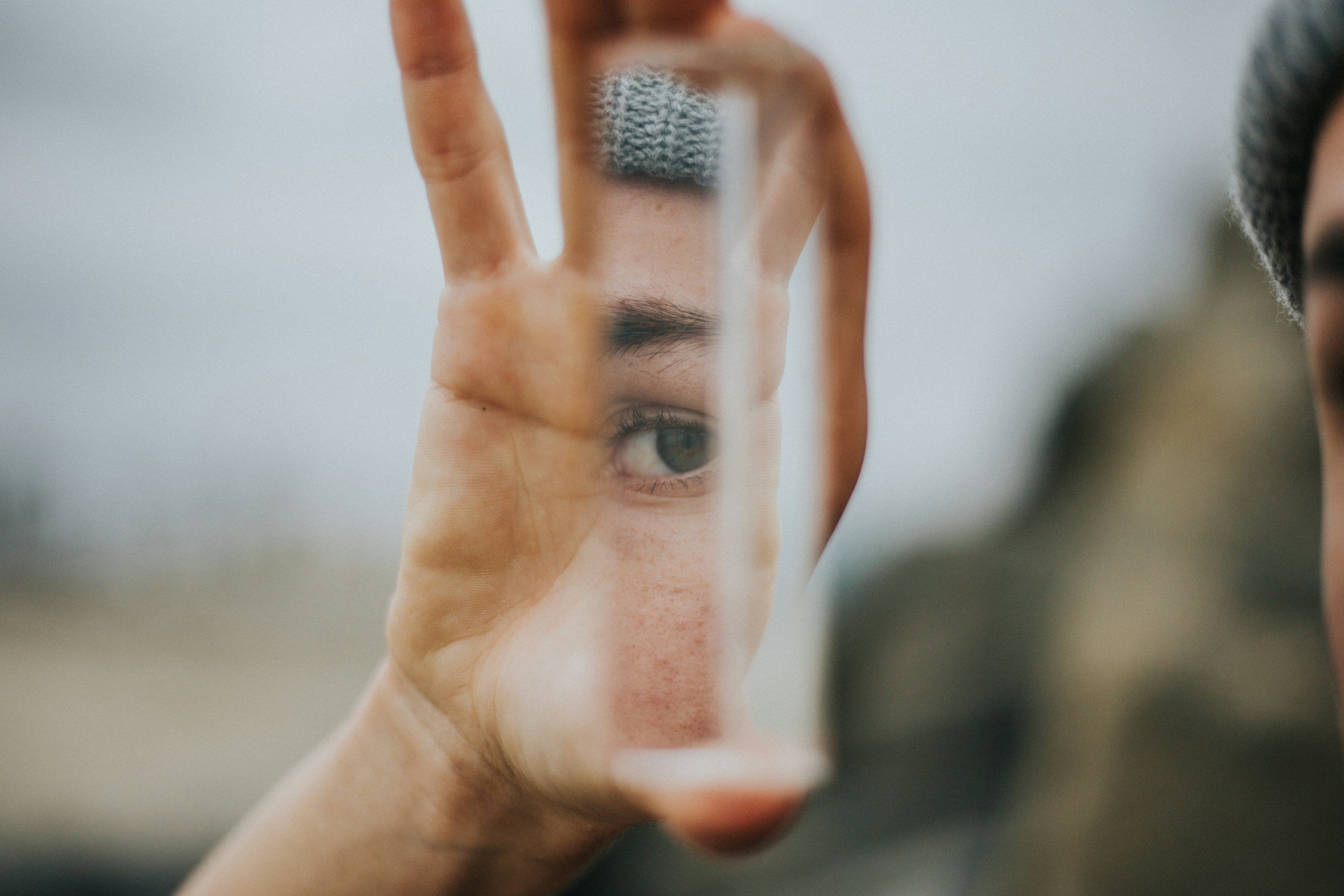Ready Player Who?
My passion for videogames stems from a certain SEGA posterchild. Their little blue hedgehog, with his obsessive compulsion for speed and golden rings, ran laps around my young heart and, since then, the gaming industry has indeed sped its way past the sun.
By way of revenue, the gaming industry has been eclipsing the film and music industries for some time now. So… Why is it that when the games medium tries its hand at a game-to-film, cross-medium approach, it so often ends in mediocrity?
One need only glance at the monstrosity that was the initial character design for Sonic (2020) that Paramount saw fit to unleash upon audiences to see the disconnect behind studios and their audiences. Due to a united uproar from fans, that heinous, Mighty Boosh Crack-Fox lookalike was yeeted back into the depths from whence it came and, due to the tireless efforts of a dedicated VFX team dancing to the tune of $5 million, the final product revealed a far more faithful and infinitely less unsettling design.
This overhaul undoubtedly aided the film’s ascension to the 8th highest-grossing video game movie of all time. And yet, I don’t know how many could honestly call the film on this list ‘good’. Hitman, Assassin’s Creed, Resident Evil, all titles with significant sway in the games industry, yet their cinematic adaptions just don’t land. It’s not that the films are swinging for the Oscars; it’s that they just don’t seem to swing for much else either. Cash grabs that disregard the source material are hardly a new phenomenon, yet not all hope is lost.
In the words of English churchman Thomas Fuller, or Gotham District Attorney, Harvey Dent, depending on your persuasion, ‘The night is always darkest before the dawn’, and it would appear that such a dawn is indeed on the horizon.
Netflix’s first foray into crossing the mediums of film, television and games came in Castlevania. This much-loved game series took Stoker’s Dracula and played around with its vampiric lore, much to the widespread appreciation of fans and critics alike. In the wake of the show’s conclusion, Netflix has recently confirmed in its Geeked Week that another show within the universe is in the works, and it appears that game publisher Konami could be remastering some of the older titles in the series, potentially trying to cash in on the show’s newfound following.
Following Castlevania, Netflix’s biggest games-to-tv hit is undoubtedly that of The Witcher. Swathes of lost and lonely hearts hoping to find solace in a new fantastical reprieve to soothe the loss of what should have been in the disappointing demise of Game of Thrones flocked to The Witcher, in which Henry Cavill swaps the cape of Superman for the cloak of Geralt of Rivia.
Monster slayer, salacious seducer of sorceresses, and an all-round sardonic swordsman, Geralt’s first major live action appearance went down a treat with audiences. Whilst I wasn’t as wowed as many, I admire Cavill’s dedication to the role and he is, without doubt, the best part of the show. Following its successful reception, warranting a 2nd season and anime prequel, sales of The Witcher 3: Wild Hunt soared by 554%.
I should note at this point that The Witcher (the show) actually follows the events of the books rather than the games, and thus I walk a fine line with my reasoning on this one. However, seeing as Cavill himself would not have known of The Witcher series were it not for the games, nor a significant portion of the show’s audience for that matter, I feel justified tacking this one onto the list.
To those interested, a dispute between author Andrzej Sapkowski and the games’ developer, CD Projekt RED came to an end in 2019. Due to Wild Hunt’s sweeping success, being heralded by many as one of the best games of the last console generation, Sapkowski attempted to alter the lump sum deal he struck when signing over the rights to the developers, seeking $16 million in royalties as he did not ‘foresee their success’ with the franchise. But I digress…
These shows mark the beginning of a long-term and significant investment by Netflix into games media. Cuphead, Resident Evil, Splinter Cell, Final Fantasy, Assassin’s Creed, Tomb Raider, Cyberpunk, Far Cry, and a film set in The Division’s world, starring Jessica Chastain and Jake Gyllenhaal are all in the works.
Films, tv shows, anime and live-action; not only is Netflix double-dipping on a number of these titles, but they’re also reaching out to figureheads in the industry to provide a games service of their own. Indie developer Bonus XP has already created games in the Stranger Things and Dark Crystal universes for Netflix. If Netflix should develop their own titles, one can only imagine the possibilities.
An open-world, action/adventure game set in the world of Kipo and the Age of Wonderbeasts? An upbeat detective game starring Enola Holmes? Or a splash of gallows humour in an interactive drama in which your character experiences a dark night of the soul, snowballing one calamity after another in BoJack Horseman’s Hollywoo? As per usual, only time will tell…
So, Netflix is invested in games, but who else? Set to release in 2022, Lionsgate is tackling a Borderlands movie, a series known for its outlandish violence and humour in tandem. Starring Jamie Lee Curtis, Cate Blanchett, Kevin Hart and Jack Black in the lead roles, the film is packing A-lister artillery.
Also, in 2022, Sony Pictures aims to release Uncharted, starring Tom Holland as a young Nathan Drake and Mark Wahlberg as Victor Sullivan. This dynamic duo began their treasure hunting days in 2011 on PlayStation 3 and have since accrued a fanbase of well over 37 million.
Whether it’s Dave Bautista turning down a role in Fast and Furious to pitch a Gears of War movie, the Ghost of Tsushima movie, to be directed by John Wick’s Chad Stahelski, or the sequels to Sonic, Alicia Vikander’s Tomb Raider, or the Minecraft movie, it is clear that big money all round sees the value of tapping into the games industry.
Seeing A-lister talent diving into video game adaptions is a new and trending phenomenon, though celebrity appearances in games themselves is far from unusual. Samuel L. Jackson in GTA, Liam Neeson in Fallout, Gary Oldman in Call of Duty, Kristen Bell in Assassin’s Creed, Elliot Page and Willem Dafoe in Beyond: Two Souls, and Giancarlo Esposito in the upcoming Far Cry 6, to name just a few.
I expect this trend of talent transfer will continue to homogenise as the industry continues to grow. Far rarer is to see the talent transfer in the opposite direction, to see gaming talent take the reins on a televisual or cinematic project, making this last entry all the more enticing a project.
Released on PlayStation in 2013, The Last Of Us captivated fans in the millions. To those unfamiliar with the series, the game tells the story of Joel and Ellie as they cross the states of America, 20 years after the fall of civilisation due to a cordyceps infection that has ravished the planet. In his writing philosophy, director Neil Druckman states that it boils down to ‘simple story, complex characters, and this ethos shines through in every dire scene.
The gruelling physical journey the characters go on ultimately pales compared to the emotional mileage of this masterpiece. Unsurprisingly, its sequel, released in 2020, not only topped the Game Of The Year awards of its predecessor but has since become the most awarded game in history. The combination of writing, acting, music, sound design, art and mechanics behind these generation-defining experiences is unparalleled, making it the perfect game for HBO to pick up and adapt into a tv series.
With Druckmann helming the show, taking writing credits alongside Craig Mazin, of Chernobyl fame, Gustavo Santaolalla reprising his role as composer, and Merle Dandridge reprising her role as ‘Queen Firefly’, my confidence in the show could not be higher. With Pedro Pascal stepping into the boots of Joel and Bella Ramsey into Ellie’s converses, a star-studded cast and crew are set to bring the biggest game adaption yet to life, and I for one am excited.
Ultimately, the best way to experience the rich worlds that games have to offer is still to play them. Games have long since surpassed whatever arbitrary threshold determines what is and isn’t art. Sure, edited movies on Youtube and Lets Plays on Twitch will present to you the story of any linear narrative, but what drew me to games was the fun to be had in interacting with characters and what has kept me is the powerhouse of storytelling that continues to thrive in the games space.
When watching anything, we are reduced to the role of spectator, where our vision is defined by the director. In games, even in linear narratives, this oversight becomes far less regulated and, through playing as a character, we all but literally become the character we control. Their pain and sorrow, joy and fear, all become our own. Actively driving the narrative forward forces you to engage, offering a level of interactivity and synonymity between character and consumer that no other medium can truly capture.
However, to those not interested or inclined to pick up a controller, the future of game adaptions looks bright. I adore seeing shows like The Mandalorian and Wanda-Vision bring long-loved and well-established universes into a new light and, if there’s anything you take away from this piece, it’s that greatness awaits, wherever and however you choose to consume your games media.
If you’ve happen to have read a previous article of mine, An Ode to the Score, then you’ll know I enjoy a good bit of fanfare. In that article, I gave Michael Giacchino a fairly hard time for his work on Rogue One. So, by way of amendment, I have to say, Giacchino’s seminal work on the score for Medal of Honor laid the foundation for much of what videogame scores have become. Whether it’s Gustavo Santaolalla’s hauntingly iridescent work on The Last Of Us, or Bear McCreary’s God of War theme, which makes me feel like I could choke out a dragon, the talent behind the music of the industry is thriving. If this notion tickles your earlobes, please do check out the selection above!
Check out the perfect Spotify playlist to accompany this article created by Martin: https://open.spotify.com/playlist/1cDj5oXeWThPcgyAtC46uj?si=f40f94cfec9848e5
Written by Martin O'Malley
Martin is a London based English graduate, currently working as a tutor. His claim to fame is that he won the Daily Mail Harry Potter lookalike competition in 2001, a feat he is yet to top. In his down time, if he’s not losing the battle against his ever-growing watchlist, he’ll be reading one King book or another.











